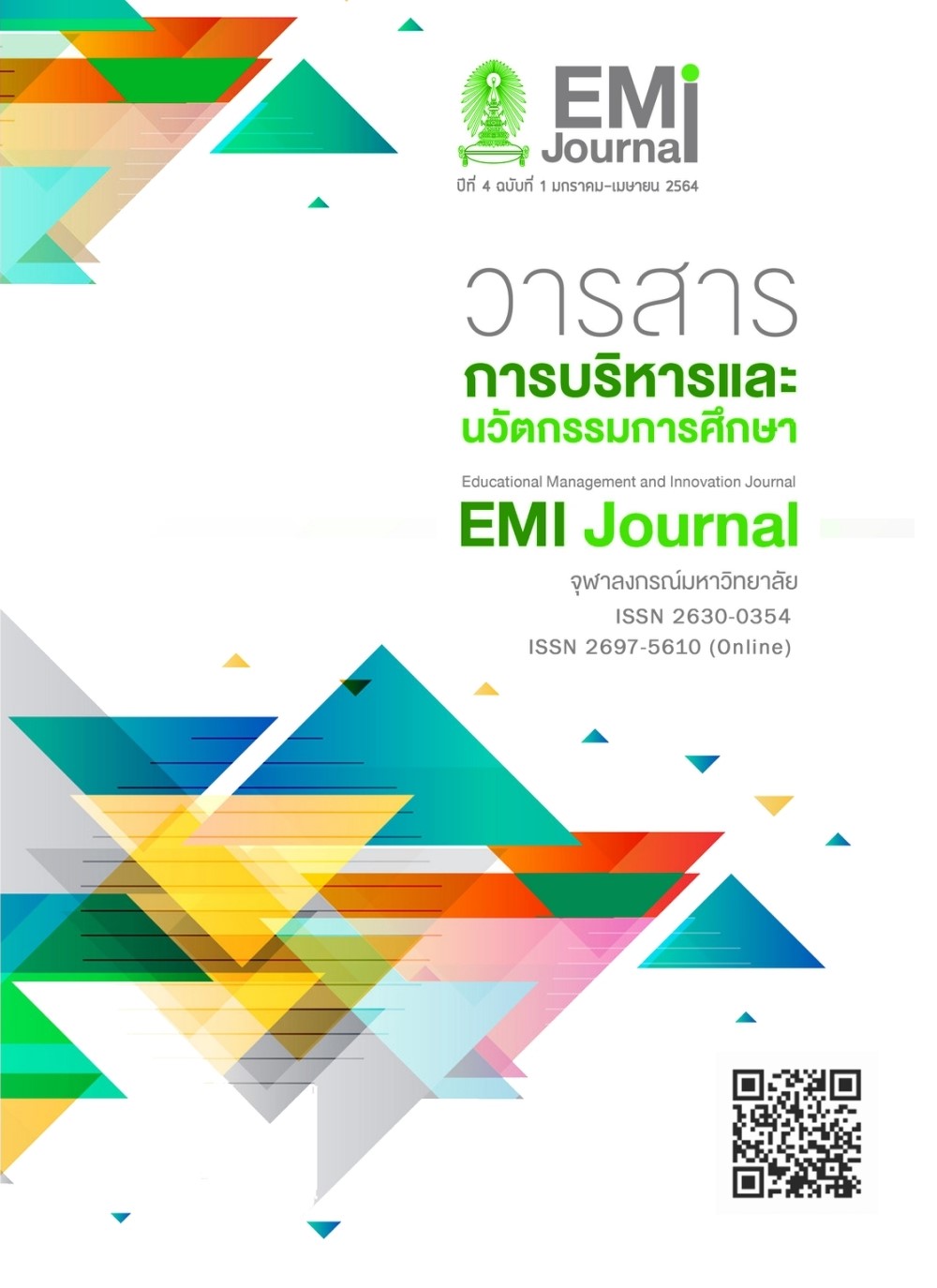Approaches for Teacher Development of Siriwitthaya Private School Based on the Concept of Digital Citizenship
คำสำคัญ:
Teacher Development, Digital Citizenshipบทคัดย่อ
-
Downloads
เอกสารอ้างอิง
Angela, M. (2016). Ethics as an escape from regulation. From “Ethics-washing” to Ethics-shopping, Amsterdam University Press. Retrieved October 20, 2019, from https://www.jstor.org/stable/pdf/j.ctvhrd092.18.pdf
Chamchoy, S. (2018). Concepts, Approaches for School Administration in the Digital Era to the innovation school in School Management in the Digital Era. Chulalongkorn University Printing House. [in Thai]
Chongkhlaiklang, S., & Siribanpitak, P. (2014). Development of a management model for the empowerment of teachers in basic education institutions. Journal of Education Studies, 42(4) (October-December), 78-92. [in Thai]
Dessler, G. (2015). A framework for Human Resource Management (6th ed.). Indochina: Pearson Education Indochina. Retrieved January 12, 2019, from https://monizaharie. files.wordpress.com/2017/11/dessler-human-resourcemanagement-2015.pdf
Jitsaeng, K. (2012). The relationship of individual and group factors to internet literacy skills of youth in Khon Kaen Municipality. (Master’s thesis, Khon Kaen University). [in Thai]
Ministry of Information and Communication Technology. (2016). Digital Development for National Economic and Social Development. Bangkok: Ministry of Information and Communication Technology. [in Thai]
Narintarangkul Na Ayudhaya, S. (2018). Human Resource Management. In S. Chamchoy (Ed.), Leadership on Educational Management and Quality Assurance (pp. 136-142). Bangkok: Chulalongkorn University Printing House. [in Thai]
National Institute for Development of Teachers Faculty Staff and Education Personnel. (2005). Teacher development system of the Ministry of Education. Nakhon Pathom: Petchkasem Printing House. [in Thai]
National Science and Technology Development Agency. (2016). Digital Literacy. Retrieved June 20, 2016, from https://www.nstda.or.th/th/nstda-knowledge /142-lnowledges/2632 [in Thai]
Office of the Education Council. (2012). The development of new student characteristics to guarantee reforms in the 2nd decade in Integrated Information technology and communication in learning management through the project. Bangkok: Office of the Education Council. [in Thai]
Rabin, R. (2014). Blended learning for leadership: The CCL approach. Center for Creative Leadership. Retrieved October 15, 2019, from https://www.ccl.org/wp-content/uploads/2015/04/BlendedLearningLeadership.pdf
Ratchagit, T. (2019). Empowering organizations with 70:20:10 learning model and curriculum development. Thailand HR Note. Retrieved October 20, 2019, from http://hcm-jinjer.com/thai-media/orgdevelopment/190620-model-70-20-10/ [in Thai]
Ribble. M. (2016). Digital Citizenship Defined: Teach the 9 elements to enhance students ‘safety, creativity an empathy. ISTE. Retrieved February 2, 2019, from https://otis.coe.uky.edu/DDL/Digital_Citizenship_Downloadable_10-2016_v11_ web.pdf
Soodphakdee, D. (2014). “Digital Literacy” Summary of the lecture on Information and Communication Technology in the Development of Digital Learning Media for Research. Bangkok: Kasetsart University. [in Thai]
Srirat, P. (2019). Needs for Enhancing Teachers’ Growth Mindset. Journal of Educational Administration and Innovation, 2(May-August), 20-35. [in Thai]



